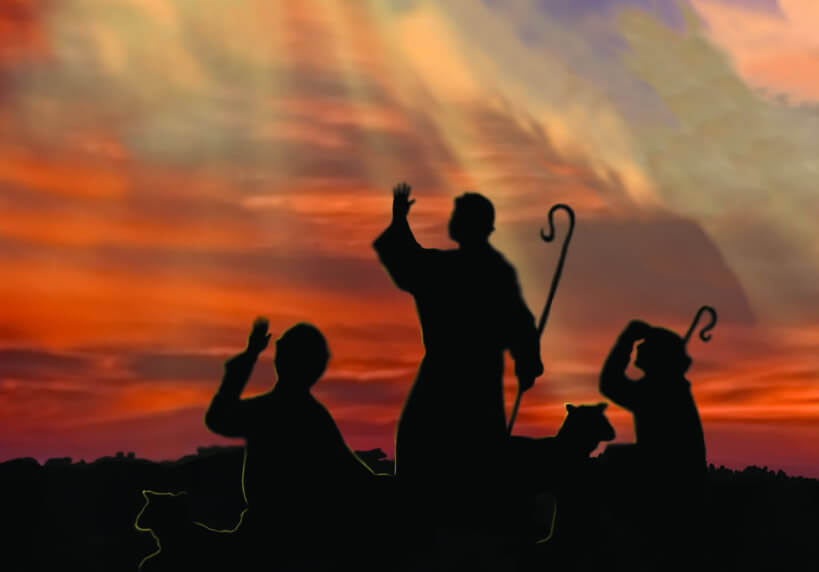“Good News For All The People”—Daily Reflections for Advent 2016
THE THIRD DAY OF ADVENT, November 29th
But the angel said to them, “Do not be afraid; for see—I am bringing you good news of great joy for all the people: to you is born this day in the city of David a Saviour, who is the Messiah, the Lord.”
Luke 2:10-11
William Tyndale prayed hard and worked hard to get it right. He wanted to come up with just the right English word to express all the joy of God’s good news to the shepherds. Tyndale was, after all, the “Father of the English Bible”, the first person to translate the Greek New Testament’s Christmas story into English. He felt the responsibility as he pored over the Greek text and weighed English words. He wanted the word that would make an English ploughboy leap for joy. Tyndale wrote:
Euangellion…is a Greek word and signifieth good, merry, glad and joyful tidings, that maketh a man’s heart glad, and maketh him sing, dance, and leap for joy…Justified, restored to life and saved, brought to liberty and reconciled unto the favor of God, and set at one with Him again, which tidings as many as believe laud, praise, and thank God and are glad, sing and dance for joy.” (William Tyndale, A Pathway into the Holy Scripture)
Tyndale knew that the Greek word euangellion, coming down to him as the Latin evangelium, and Middle English as evangel, was a heavyweight word. Euangellion was a word that had been used of Roman emperors worshipped as saviors of the world. An inscription from 9 B.C. (a few years before Christ) hails the birthday of Caesar Augustus: “The birthday of the god [Augustus] was the beginning for the world of the good news [Greek, euangellion] that have come to men through him.” (New International Dictionary of New Testament Theology, ed. Colin Brown) The good news of evangellion sounded to ancient ears as:
A message that brought joy to its hearers, often about a military or political victory…News about an imperial emperor’s birth, coming of age, enthronement, speech, decree, or act that brought long hoped-for fulfillment of peace and prosperity in the world. (Ibid)
On that first Christmas night the shepherds knew that they had heard news about something that would forever change the world. They heard it not as news that they needed to make themselves better. They heard it not as news about something to do, but something God had done. And it was good news for everyone!
The good news isn’t just for Christians. And it isn’t good news about how to get our lives together, or how to be good, moral people. It isn’t good news about how we might win God’s love. The good news that sent shepherds bounding over Judean hills in the middle of the night to the manger, was the reporting of a new reality: “To you is born this day in the city of David a Saviour, who is the Messiah, the Lord.”
In many churches we have talked about Gospel and God’s good news for so long, and yet we have never thought about what good news really means. Thus, we have often subtly changed good news into good advice, good teaching, or a good formula for living. But the good news is the declaration of an actual event, the reporting of a reality. God’s good news is not something to do, but something done. And Jesus did it! Believe the good news!
PONDERINGS
- Imagine asking other people what God’s good news is; what do you think various opinions might be?
- Knowing that to first century people the Greek word euangelliion meant the news of an “act that brought long hoped-for peace and prosperity to the world”, what must have been going through the shepherds’ minds that night about God’s good news?



